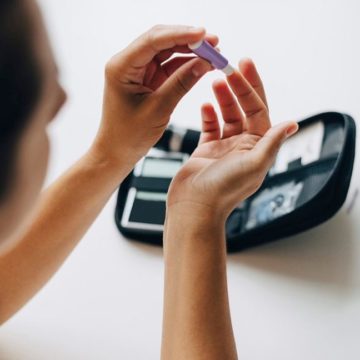
- With diabetes, missing a meal can create serious problems especially if you’re taking medications that can cause a dip in your blood sugar levels.
- According to diabetes expert, Dr. Bartolome Burguera, when skipping meals, it’s essential that you keep your blood sugars under control to avoid low blood symptoms like weakness, hunger, dizziness and many more.
- For those who don’t follow a regular eating schedule, make sure to talk to your doctor about modifying your diabetes medications.
Generally, missing a meal is no big deal. But for people with diabetes, doing so can disturb the balancing act between food intake and medication. This can lead to a dangerous drop in blood sugars (hypoglycemia) or too high levels (hyperglycemia).
If you’re taking diabetes medications that can lower blood sugar levels, don’t skip meals, advises Dawn Noe, a registered dietitian.
“If you’re just not up to eating on a regular schedule, talk to your doctor about diabetes medications that won’t cause low blood sugars,” she adds.
Keeping blood sugar under control is crucial
When you don’t feel like eating much, it’s important that you keep your blood sugars in check. How often depends on whether you have type 1 or type 2 diabetes and what medications you take.
For type 1 diabetes
Make sure to check your blood sugar before meals and before bedtime, typically four times per day, according to diabetes specialist Dr. Bartolome Burguera.
Moreover, closely monitor your levels if you notice low blood sugar symptoms such as:
- Hunger
- Shakiness or weakness
- Sweating
- Dizziness or light-headedness
- Sleepiness
- Confusion
- Trouble speaking
- Anxiety

For type 2 diabetes
If you are taking a sulfonylurea medication, check your blood sugars in the morning and at bedtime.
“It’s important to keep in mind that sulfonylureas may cause blood sugar to drop during the day if you don’t eat anything after taking your medication,” warns Dr. Burguera.
However, if you are taking only metformin, there is no need to check your blood sugar more than once a day because this medication doesn’t usually cause hypoglycemia.
Dr. Burguera stresses that it is vital to know the symptoms related to low blood sugars and be ready to check your blood sugar and to eat or drink something if needed to address a low blood sugar reading.
Watch out for high blood sugar as well

Not eating a meal due to an illness such as a flu or infection can also raise blood sugars.
“When you have diabetes and are acutely ill, you should check your blood sugars up to four times per day, drink plenty of fluids and contact your doctor if your blood sugars are consistently over 250,” Ms. Noe says.
Managing diabetes when you’re not hungry

If you find that you’re eating less due to certain factors, see your doctor because your medications may need adjusting.
In the meantime, here are some general guidelines:
Mealtime insulin — If you skip the meal, you should also waive the mealtime insulin.
Long-acting insulin — Typically, the dosage for long-acting insulin doesn’t rely on food intake, so it’s unlikely that your dose will be lowered.
Other medications — Medications like metformin, SGLT-2 inhibitors and DPP4 inhibitors may or may not need adjustment because they don’t normally cause hypoglycemia.

However, checking for symptoms isn’t enough to make sure your blood sugar is normal or out of whack. Rather, regular monitoring is the only way.
“It’s important to keep in mind that the symptoms of high or low blood sugars may fade away after several years of living with diabetes, especially if your blood sugars have not been well controlled,” says Ms. Noe.
She added that since some high blood sugars and low blood sugar symptoms are the same, it is advisable to know your blood sugar levels first before taking any steps to treat it.
Source: Cleveland Clinic
